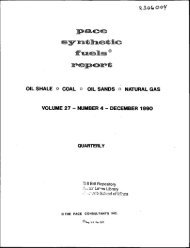Ikelic - Alliance Digital Repository
Ikelic - Alliance Digital Repository
Ikelic - Alliance Digital Repository
You also want an ePaper? Increase the reach of your titles
YUMPU automatically turns print PDFs into web optimized ePapers that Google loves.
STATUS OF OIL SHALE PROJECTS (Underline denotes changes since June 1994)<br />
R&D PROJECTS (Continued)<br />
NEW PARAHO ASPHALT FROM SHALE OIL PROJECT-New Paraho Corporation (S-310)<br />
New Paraho Corporation is a wholly owned subsidiary of Energy Resources Technology Land, Inc. New Paraho Corporation plans<br />
to develop a commercial process for making shale-oil-modified road asphalt. Researchers at Western Research Institute (WRJ)<br />
and elsewhere have discovered that certain types of chemical compounds present in shale oil cause a significant reduction in mois<br />
ture damage and a potential reduction in binder embrittlement when added to asphalt. This is particularly true for shale oil<br />
produced by direct-heated retorting processes, such as Paraho's.<br />
In order to develop this potential market for shale oil modified asphalts, New Paraho has created an initial plan which is to result in<br />
(1) proven market performance of shale oil modified asphalt under actual climatic and road use conditions and completion of a<br />
(2)<br />
comprehensive commercial feasibility study and business plan as the basis for subsequent<br />
securing financing for a Colorado-based<br />
commercial production facility.<br />
The cost of carrying out the initial market development phase of the commercial development plan was approximately $25 million,<br />
all of which was funded by Paraho. The major portion of the work conducted during this initial phase consisted of producing suffi<br />
cient quantities of shale oil to accommodate the construction and evaluation of several test strips of shale oil-modified asphalt<br />
pavement. Mining of 3,900 tons of shale for these strips occurred in September 1987. The shale oil was produced in Paraho's pilot<br />
plant facilities, located near Rifle, Colorado in August, 1988. The retort was operated at mass velocities of 418 to 538 pounds per<br />
hour per square foot on 23 to 35 gallon per ton shale and achieved an average oil yield of 96.5 percent of Fischer Assay. In 1988,<br />
New Paraho installed a vacuum still at the pilot plant site to produce shale oil asphalt from crude shale oil.<br />
Eight test strips were constructed in Colorado, Utah and Wyoming. The test strips are being evaluated over a period of five years.<br />
during which time Paraho will complete site selection, engineering and cost estimates, and financing plans for a commercial produc<br />
tion facility. Test strips were also completed on 1-20 east of Pecos, Texas, in Michigan for a test section of 1-75 near Flint, and US-<br />
59, northeast of Houston, Texas, and US-287 in Jackson Hole. Wyoming.<br />
Paraho has proposed a $J>4 million commercial scale plant capable of producing 555 barrels of crude oil per day, of which<br />
440 barrels would be shale oil modifier (SOM) and 110 barrels would be light oil to be marketed to refineries.<br />
An economic analysis has determined that SOM could be marketed at a price of $140 per barrel if tests show that SOMAT can af<br />
fect at least a 10 percent improvement in pavement life. A feasibility study suggests that Paraho can expect a 25 percent rate of<br />
return on SOMAT production.<br />
Approximately 1500 acres of the Mahogany Block, controlled by the Tell Ertl Family Trust, are available to New Paraho. New<br />
Paraho also maintains control of approximately 11,000 acres of oil shale leases on state lands in Utah. In addition. Paraho is<br />
evaluating other sites where the facility may be located.<br />
In December 1992 New Paraho announced that its pilot plant in Rifle, Colorado was currently producing 15 barrels of shale oil<br />
daily as part of a new SOMAT test marketing program started in September. This program has been completed and the product<br />
has been successfully marketed.<br />
The first phase of the new test market program for SOMAT is expected to cost $3.0 million through 1994. and produce enough<br />
SOMAT for 50 to 60 miles of asphalt roads and employ 15 people.<br />
The test strip results have been encouraging and SOMAT is proving to be a superior road paving material, with distinct life-cycle<br />
cost advantages.<br />
The oil shale asphalt, as a 10 percent additive to conventional asphalt, is far more resistant to water damage and aging than conven<br />
tional asphalt. It adds about 10 to 15 percent to the cost of asphalt, but is a bargain compared to other asphalt modifiers that ac<br />
complish the same tasks and increase costs by 30 to 35 percent.<br />
New Paraho has proposed a 7-month, $500,000 commercial evaluation program to assess the economic benefits of coprocessing<br />
used tires with oil shale. Initial experiments have demonstrated that retort operations can be sustained with used tires as 5 percent<br />
of the feedstock.<br />
Research Project Cost: $7.0 million<br />
Estimated Commercial Project Capital Cost: $54.0 million<br />
- SHALE OIL VALUE ENHANCEMENT VENTURE J.W.<br />
Bunger & Associates. Inc. (JWBA1 (S-325^<br />
Shale oil produced from Western U.S. Green River Formation contains high concentrations of potentially valuable products-<br />
particularly nitrogen compounds-pyridines. pyrroles, and their benzologs which possess market values of $800 per barrel or more.<br />
JWBA estimates that 10 percent of the raw shale oil could be manufactured into products commanding these values and is planning<br />
a venture to examine commercial production of these value-added products.<br />
2-37<br />
SYNTHETIC FUELS REPORT, JANUARY 1995



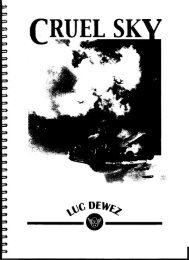
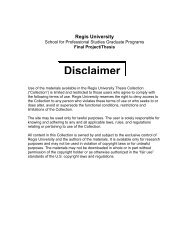
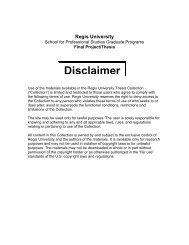

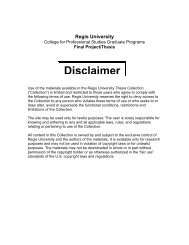

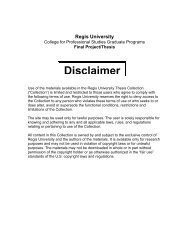
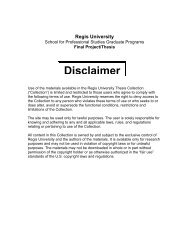

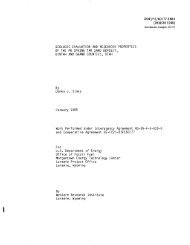


![pace SrntfletIc fne]its report - Alliance Digital Repository](https://img.yumpu.com/10493335/1/190x245/pace-srntfletic-fneits-report-alliance-digital-repository.jpg?quality=85)
